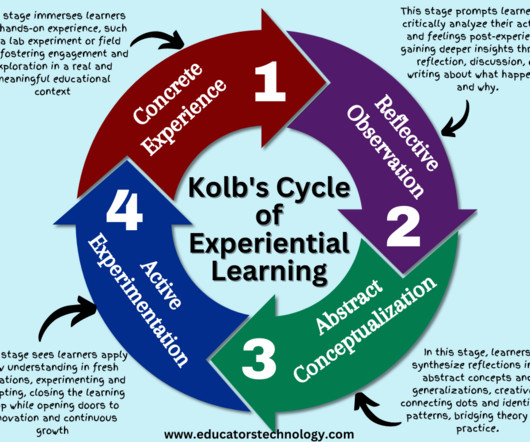New Research Compendium Addresses Productivity & Transformation When Applying Technology in Learning Math
Digital Promise
SEPTEMBER 25, 2017
Recently, the 60,000-member National Council of Teachers of Mathematics (NCTM) released a new “Research Compendium,” a handbook with 38 chapters , each summarizing the best research on an important aspect of teaching and learning mathematics. When technology wastes precious classroom time, it’s less likely that use will continue.














Let's personalize your content